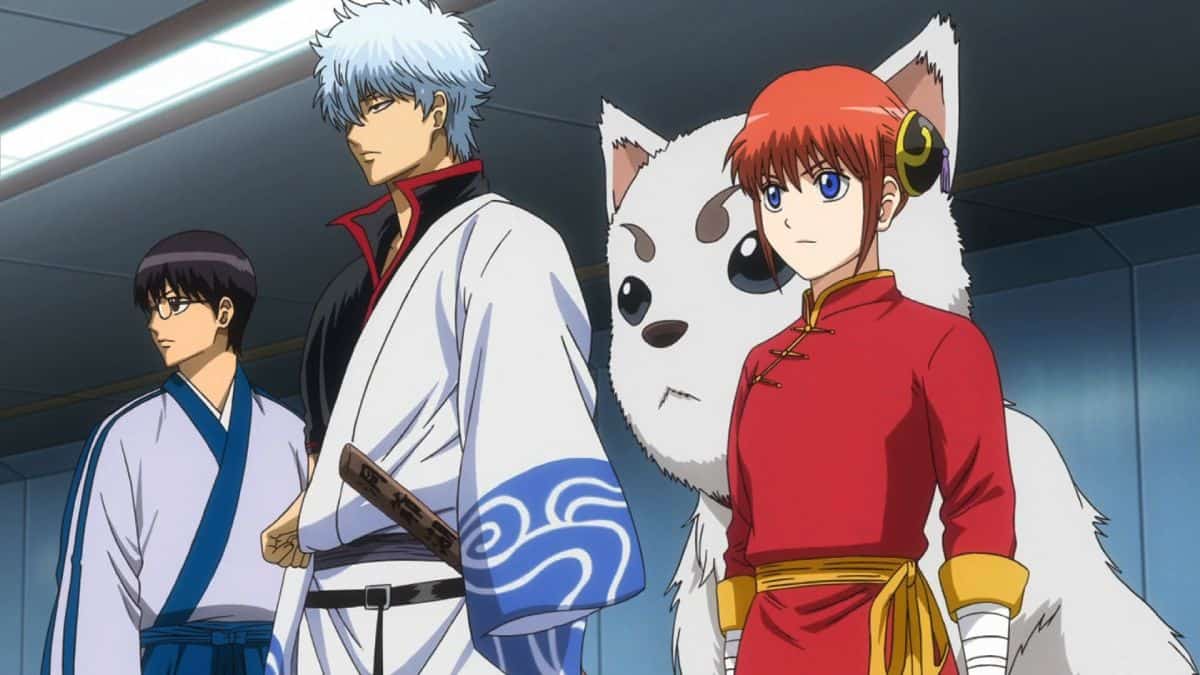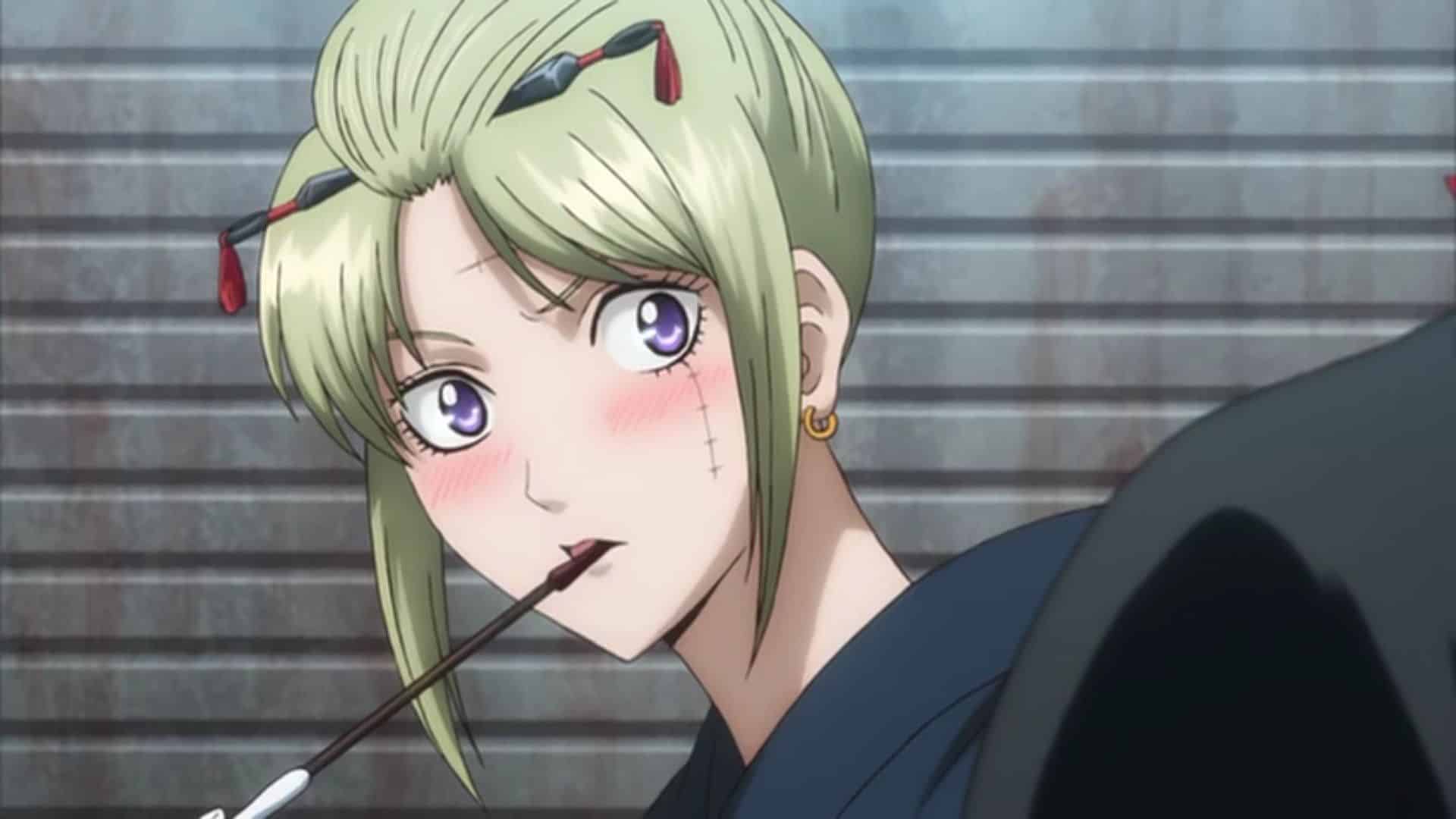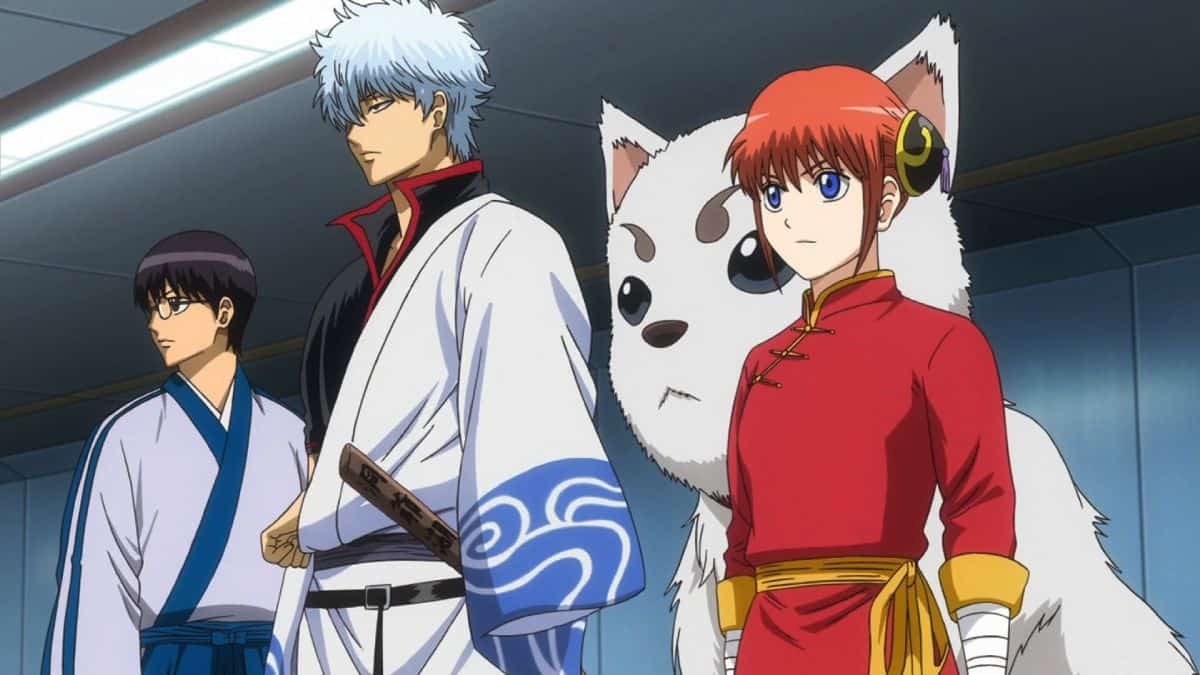Plenty of shonen anime in the industry comes up with unique plots, rare characters, and some iconic scenes that stick with us for a very long time. Some may seem very repetitive in pattern as the genre alone is to please the male audience with heavy action scenes and dark themes. I’d say Gintama was a hilarious take on making an anime, both tear-jerking and a laughable element to present.
Gintama blends various themes of foolishness, fun, parody, satire, and dark themes with aliens and samurai to give the series a great mix of both old and new eras. There may be some boring elements, but the series is quick to catch up with molding the viewers into the Gintama universe. The characters are lovely. The animation is quirky and colorful. What else can this show miss?
Like One Piece, Gintama is a journey full of adventures and mindless turnovers that blends a story and unrelated components into a great show. Let’s talk about Gintama and what makes it worth a watch!
About Production
Gintama, also known as Silver Soul, was originally a manga series written and illustrated by Hideaki Sorachi. The manga ran from 2003 to 2018 on Weekly Shonen Jump and was completed on the Gintama app in 2019. The manga was adapted into a full 376-episode anime series by Sunrise studio, directed by Shinji Takamatsu and written by Akatsuki Yamatoya.
The series was followed by three stand-alone movies, with the third movie, Gintama: The Very Final, airing on the screens in 2021 which marked the end of the long journey of Gintama anime. Gintama was one of the pivotal factors which introduced anime to the Western world along with Naruto. With over 55 million copies of the manga sold, Gintama is one of the best-selling mangas to exist.
Apart from the anime series, Gintama also has a live-action adaptation directed by Yuichi Fukuda, which features Shun Oguri as Gintoki Sakata, the protagonist of the story. Gintama is critically praised for its new-age humor, medieval set-up, and great story progression both in Japan and overseas.
A Brief Synopsis of Gintama
Gintama tells the story of a samurai named Gintoki Sakata who carries out odd jobs, and freelancing work after the alien invasion of his region bans all samurai from carrying weapons and swords in public. In his journey, he meets a teenager whose sister he saved from an alien attack. The boy, named Shinpachi Shimura, impressed by Gintoki, decides to be his ally in assisting him in his chores.
As a duo, they save an alien girl, Kagura, who joins the team and finally becomes the famous trio ‘Yorozuya.’ The adventures unfold for Gintoki and his troupe fighting against the Shogunate police, wild aliens, and comrades, along with an immortal antagonist, to save their world.
Thoughts and Views
Frankly, Gintama is known for the comical aspects that the series brought. The series focused mostly on humor and filler gags to mix the characters of Gintoki as an alien-fighting samurai and the heavy themes of the show. What stands out about Gintama is the randomness the series brings.

It is, in fact, quite bizarre in the sense of comedy and humor. Gintama starts as a series full of magic, aliens, samurai, and a plot that requires less thinking, but the catch is that there are moments where the anime takes some serious turns in the arc. This includes Gintoki’s comrades turning into the antagonists and coming across his life or him fighting off aliens to save the lives of people.
Gintama does not quite have a solid plotline as the show is more focused on episodic filler elements and random throws of scenes and tales, with every episode having something new for the viewers to enjoy. The characters in the show are fluid, with consistency in their development and complicated backstories, which make them have their shining points.

It is rather very strange as the series may come off as hilarious and easily enjoyed, but then the subtle dark themes and plot changes make you question what happened.
Now, as an Asian kid who grew up watching old anime on television, starting from Doraemon, Shin Chan, and Dragon Ball Z to Beyblade, the humor of Gintama was easier to understand as it is more cultural-centric which, again, may be offputting, for the Western crowd.
As much as I do enjoy anime for its lore and story, I cannot sit comfortably to enjoy the whole roadmap of 200+ episodes of a series. Regardless of how good and impressive the series may get, I simply lose my motivation to finish it off if there is such a high stretch to the plot.
That is where Gintama failed me. Even though it is an amazing approach to the shonen genre with quirky characters and wild humor with peak plots, if you are not a dedicated fan, then the series may not live up to your expectations.
The initial thirty episodes are wholly dedicated to making you understand each character, their flaws, and good points, which adds value to the show. Eventually, you get used to remembering the many characters involved and how they play a role in shaping the storyline as it unfolds.
Many memorable parodies from Gintama became great memes in the anime community. One which stuck with me was Gintoki distracting himself while singing the Doraemon theme, which was just an iconic moment.

Gintama also references much famous anime, which includes One Punch Man, Hajime no Ippo, Assassination Classroom, and Naruto, amongst others. Again, this factor may be quite difficult to enjoy if you, as a viewer, do not know these anime or are a complete newbie to the anime community.
Also, what strikes me good about Gintama is every female character is given equal importance and strength when compared to their male counterparts. There are many girl power moments that I enjoy instead of showing the female characters as underdeveloped individuals in terms of battle skills and humor. (Something I can revisit from Fairytail and Ezra.)
Most shonen anime generate the main character to be badass and strong with great character development due to past trauma or just a superhero with ultimate powers like Midoriya from MHA or Goku from DBZ. But, what stands out about Gintama is that the writers did not hesitate to make a complete fool out of the characters by giving them hilarious personalities and embarrassing situations to cope with.
Again, such little details are important to shape the core characters by bringing in sudden spurges of tragedies in their lives or heartwrenching backstories to tie them up to the series.
This also helps the viewer connect to the character emotionally as certain arcs are introduced in the series amidst the comical aspects. Gintama has been able to create a sizable ensemble of characters with both humorous and tragic traits because of this pattern.

It is not an easy task to switch between dark themes and humor, as seen in Gintama. If not done in the right way to fit the melody in these two themes, the entire meaning of the series would have been lost in boredom and unwanted variations in tone difference. But Gintama executes this element flawlessly in the series.
Another great take is that even in such emotional episodes, the seriousness stays, which does not make the series lose its meaning. There is a gradual flow in the way Gintama presents all the themes, including misery and living to the fullest.
Final Verdict
Gintama is one of the best series to exist in terms of parody play, humor, and emotional plotline. What I like about the series is how it unfolds the storyline in a good way. Whether it be the cranky and foolish moments the characters encounter or the tragic tear-jerkers stitching the series, Gintama brings a fresh take to the shonen genre.
Although Gintama has a lot of cultural references which may be hard to understand, the humor is easy for both the younger and elder generations to have a hearty laugh on. It’s a series that is enjoyable, but I would not recommend it to newbies or beginner watchers unless it is something they want to binge-watch or invest in as a fan.
Again, you need quite a dedicated time frame to complete all the episodes of Gintama, which is easier for viewers of One Piece or fans who do not mind spending hours to speedrun the series. Gintama is a great watch for accustomed anime fans who need a break from intense shonen and dark genres to enjoy something light-hearted in terms of both story and humor. You can stream Gintama on Crunchyroll, Netflix, and Hulu.
Our Rating: ⭐ (4/5).
Also Read: 10 Most Iconic Moments In Gintama



